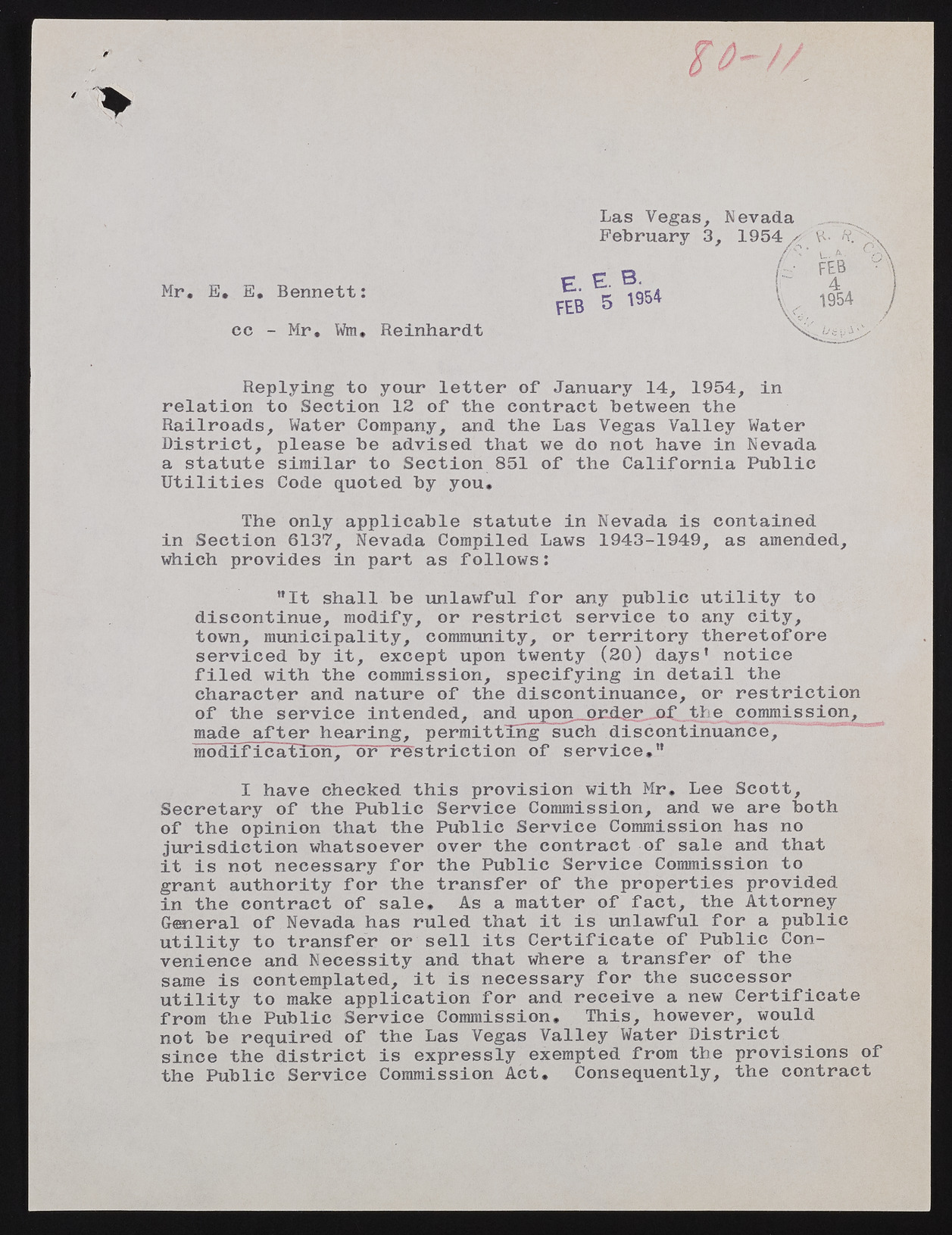Copyright & Fair-use Agreement
UNLV Special Collections provides copies of materials to facilitate private study, scholarship, or research. Material not in the public domain may be used according to fair use of copyrighted materials as defined by copyright law. Please cite us.
Please note that UNLV may not own the copyright to these materials and cannot provide permission to publish or distribute materials when UNLV is not the copyright holder. The user is solely responsible for determining the copyright status of materials and obtaining permission to use material from the copyright holder and for determining whether any permissions relating to any other rights are necessary for the intended use, and for obtaining all required permissions beyond that allowed by fair use.
Read more about our reproduction and use policy.
I agree.Information
Digital ID
Permalink
Details
More Info
Rights
Digital Provenance
Publisher
Transcription
Las Vegas, Nevada ___ February 3, 1954 ^ SS Mr* E. E. Bennett: cc - Mr. Wm* Reinhardt Replying to your letter of January 14, 1954, in relation to Section 12 of the contract between the Railroads, Water Company, and the Las Vegas Valley Water District, please be advised that we do not have in Nevada a statute similar to Section 851 of the California Public Utilities Code quoted by you. in Section 6137, Nevada Compiled Laws 1943-1949, as amended, which provides in part as follows: discontinue, modify, or restrict service to any city, town, municipality, community, or territory theretofore serviced by it, except upon twenty (20) days’ notice filed with the commission, specifying in detail the character and nature of the discontinuance, or restriction of the service intended, and upon^^rd.er .of the commission, made after hearing, permittingsuch discontinuance, modificatory or"~rgStriction of service.” I have checked this provision with Mr. Lee Scott, Secretary of the Public Service Commission, and we are both of the opinion that the Public Service Commission has no jurisdiction whatsoever over the contract of sale and that it is not necessary for the Public Service Commission to grant authority for the transfer of the properties provided in the contract of sale. As a matter of fact, the Attorney General of Nevada has ruled that it is unlawful for a public utility to transfer or sell its Certificate of Public Convenience and Necessity and that where a transfer of the same is contemplated, it is necessary for the successor utility to make application for and receive a new Certificate from the Public Service Commission, This, however, would not be required of the Las Vegas Valley Water District since the district is expressly exempted from the provisions of the Public Service Commission Act. Consequently, the contract The only applicable statute in Nevada is contained ”It shall be unlawful for any public utility to

